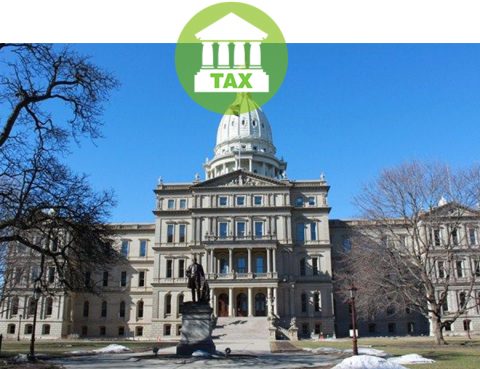
For any business owner, contractors included, putting together a succession plan may seem like an overwhelming task. Often, among the most difficult things to conceptualize is precisely how to connect — and beneficially integrate — your succession plan with your estate plan. Here are a few ideas to consider. Sell your shares By selling your…

President Biden signed the COVID-19 relief bill, American Rescue Plan Act of 2021, into law. The legislation will have major impacts on individuals and businesses. Below is a summary of the ARPA provisions summarized in the following sections: Individual Provisions and Business Provisions. Individual Provisions Unemployment Received in 2020 Partially Excluded from Income for Some Taxpayers…

What’s the potential tax trap with the Qualified Improvement Property (QIP), read on to find out. In the current economic environment, cash flow is a precious commodity. Construction companies need to make the most of depreciation deductions that can reduce their tax bills. Fortunately, several provisions of the CARES Act can help you do just…

Tax treatment for investments varies dramatically based on factors such as type of investment, type of income it produces, how long you’ve held it and whether any special limitations or breaks apply. On top of that, economic uncertainty has made tax planning for investments especially challenging this year. And there are many additional factors to…

Tax advantage rates on “ordinary income” are higher than those that apply to much of your investment income. Ordinary income generally includes salary, income from self-employment or business activities, interest, and distributions from tax- deferred retirement accounts. Some of it may also be subject to payroll tax, or you may have to pay the alternative…

January 15, 2021 – The Michigan Strategic Fund today approved two grant programs – the Michigan Small Business Survival Grants and the Michigan Stages Survival Grants – totaling $58.5 million in relief to help meet the urgent needs of small businesses and live event venues impacted by the COVID-19 virus, the Michigan Economic Development Corporation…

The Consolidated Appropriations Act, 2021 (the “CAA”), signed into law on December 27, 2020, is the second-largest federal stimulus package of 2020, following the CARES Act. The CAA provides $900 billion in COVID relief and reserves $284 billion for small businesses through a second round of Paycheck Protection Program (“PPP”) forgivable loans, or as some…

On Sunday, December 27, President Trump signed the Consolidated Appropriations Act, 2021 (CAA, 2021). The Act contains numerous individual, business, payroll, disaster, and energy-related tax provisions, as well as tax extenders. Many of the provisions, including the deductibility of expenses used with PPP loans as well as $600 stimulus payments, and an extension of payroll…

The CARES (Coronavirus Aid, Relief, and Economic Security) Act may be best known for its provisions designed to shore up the economy as the nation copes with the COVID-19 pandemic. These include distributing Economic Impact Payments to individuals and offering Paycheck Protection Program (PPP) loans to businesses. But the act also includes several provisions that…

Even before the COVID-19 crisis, construction technology was transforming the way contractors go about their business. Whether this transformation was happening rapidly or gradually is up for debate, but there’s little doubt that change was (and is) occurring. The pandemic will likely accelerate the technological (r)evolution as contractors look for ways to work more safely…
